Filter by

Publishing Sacrobosco's "De sphaera" in early modern Europe : modes of materi…
This open access volume focuses on the cultural background of the pivotal transformations of scientific knowledge in the early modern period. It investigates the rich edition history of Johannes de Sacrobosco’s Tractatus de sphaera, by far the most widely disseminated textbook on geocentric cosmology, from the unique standpoint of the many printers, publishers, and booksellers who steered…
- Edition
- Ed. 1
- ISBN/ISSN
- 9783030866006
- Collation
- XIV, 492
- Series Title
- -
- Call Number
- 523.1 Pub
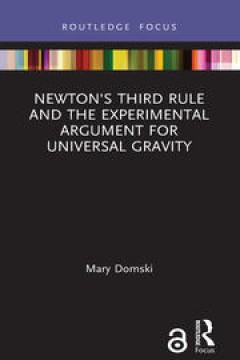
Newton's third rule and the experimental argument for universal gravity
This book provides a reading of Newton’s argument for universal gravity that is focused on the evidence-based, "experimental" reasoning that Newton associates with his program of experimental philosophy. It highlights the richness and complexity of the Principia and also draws important lessons about how to situate Newton in his natural philosophical context. The book has two primary objectiv…
- Edition
- 11
- ISBN/ISSN
- 9781000449419
- Collation
- ix; 116p;
- Series Title
- -
- Call Number
- 531.14 NEW M
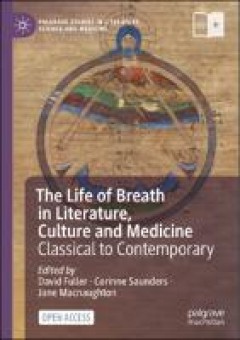
The life of breath in literature, culture and medicine : classical to contemp…
This open access book studies breath and breathing in literature and culture and provides crucial insights into the history of medicine, health and the emotions, the foundations of beliefs concerning body, spirit and world, the connections between breath and creativity and the phenomenology of breath and breathlessness. Contributions span the classical, medieval, early modern, Romantic, Victori…
- Edition
- -
- ISBN/ISSN
- 9783030744434
- Collation
- xxii, 555 p. : ill.
- Series Title
- Palgrave Studies in Literature, Science and Medicine
- Call Number
- 809.933561 FUL t
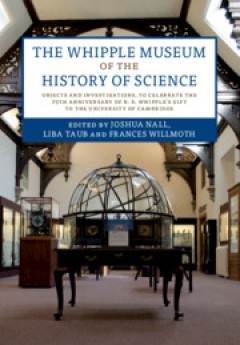
The whipple museum of the history of science : objects and investigations, to…
In this book the diverse objects of the Whipple Museum of the History of Science's internationally renowned collection are brought into sharp relief by a number of highly regarded historians of science in fourteen essays. Each chapter focuses on a specific instrument or group of objects, ranging from an English medieval astrolabe to a modern agricultural 'seed source indicator' to a curious col…
- Edition
- -
- ISBN/ISSN
- 9781108633628
- Collation
- xvii, 356 p. ; ill
- Series Title
- -
- Call Number
- 502.84 NAL t
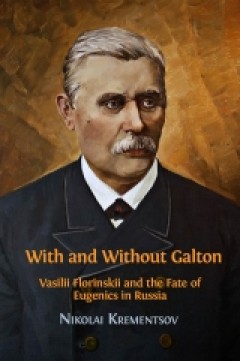
With and without Galton: Vasilii Florinskii and the fate of eugenics in Russia
In 1865, British polymath Francis Galton published his initial thoughts about the scientific field that would become ‘eugenics.’ The same year, Russian physician Vasilii Florinskii addressed similar issues in a sizeable treatise, entitled Human Perfection and Degeneration. Initially unheralded, Florinskii’s book would go on to have a remarkable afterlife in twentieth- and twenty-first-cen…
- Edition
- -
- ISBN/ISSN
- 9781783745135
- Collation
- xxv, 666 p. : ill. : ind. ; 24 cm
- Series Title
- -
- Call Number
- 363.92 KRE w
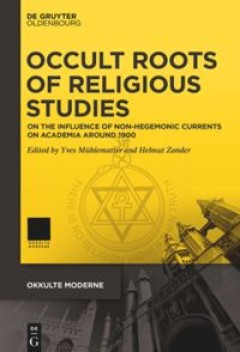
Occult roots of religious studies: on the Influence of non-hegemonic currents…
The historiographers of religious studies have written the history of this discipline primarily as a rationalization of ideological, most prominently theological and phenomenological ideas: first through the establishment of comparative, philological and sociological methods and secondly through the demand for intentional neutrality. This interpretation caused important roots in occult-esoteric…
- Edition
- -
- ISBN/ISSN
- 9783110664270
- Collation
- XII, 283 p.
- Series Title
- -
- Call Number
- 201.5 OCC o
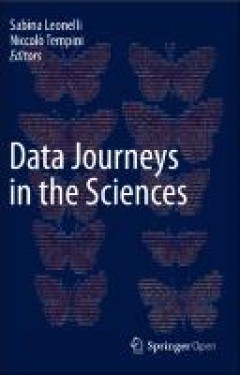
Data journeys in the sciences
This groundbreaking, open access volume analyses and compares data practices across several fields through the analysis of specific cases of data journeys. It brings together leading scholars in the philosophy, history and social studies of science to achieve two goals: tracking the travel of data across different spaces, times and domains of research practice; and documenting how such journeys…
- Edition
- -
- ISBN/ISSN
- 9783030371777
- Collation
- xvii, 412p.: ill.
- Series Title
- -
- Call Number
- 004 DAT d
 Computer Science, Information & General Works
Computer Science, Information & General Works  Philosophy & Psychology
Philosophy & Psychology  Religion
Religion  Social Sciences
Social Sciences  Language
Language  Pure Science
Pure Science  Applied Sciences
Applied Sciences  Art & Recreation
Art & Recreation  Literature
Literature  History & Geography
History & Geography